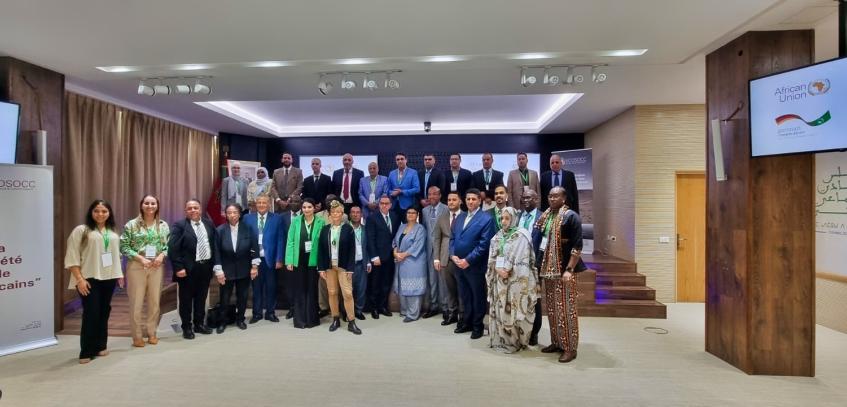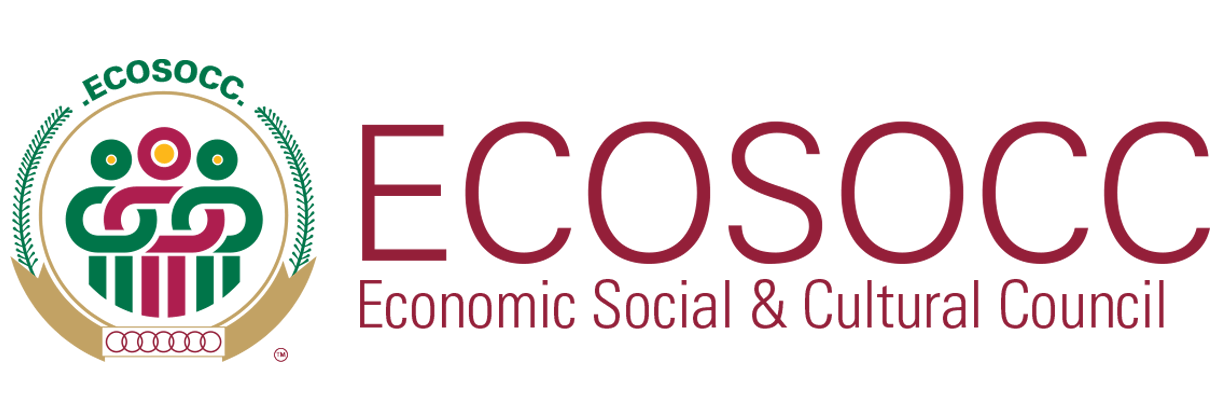ECOSOCC with support from Deutsche Gesellschaft fuer Internationale Zusammenarbeit (GIZ) GmbH held a host of Pan African series of CSO Sensitization Forums on the African Union’s Free Movement Protocol (FMP), with its inaugural Media Sensitization Forum, for the North African region.
The North African CSO Sensitization Forum was held from 7-10 November 2022 and was the third and last edition of the series following forums held in Accra, Ghana for the West and Central Regions, in May 2022, and for the Southern and Eastern regions, in Maputo, Mozambique in September 2022.
Media houses from the North Africa region participated in the forum during a special Media Sensitization Forum hosted at the International University of Rabat. Among other things, the media were given an insider’s view of the Free Movement Protocol in Africa and its accompanying CSO engagement.
The CSO Sensitization Forums were organized with the aim of introducing the Free Movement Protocol within African civil society and strengthening the capacity of participating CSOs in the popularization and implementation of the protocol across the continent.
The Free Movement Protocol in context of the African Continental Free Trade Area (AfCFTA)
In January 2018, the African Union (AU) agreed to establish the African Continental Free Trade Area (AfCFTA) to optimise intra-Africa trade. Simultaneously, the AU adopted a protocol supporting the free movement of persons between the countries of Africa. Both are considered necessary for the successful social and economic development of the countries of the African continent.
As of 8 October 2022, 54 countries had signed the AfCFTA and 44 of the 54 signatories (81.5%) had ratified, whereas 33 countries had signed the Free Movement of Persons (FMP) Protocol and only four countries had fully ratified.
The operational phase of the AfCFTA was launched during the 12th Extraordinary Session of the Assembly of the Union on the AfCFTA in Niamey, Niger on 7 July 2019. Start of trading under the AfCFTA Agreement began on 1 January 2021, however, no trade has as yet taken place under the AfCFTA regime.
Policymakers say that the free movement of labour will be a key contributor to the successful functioning of the free trade area, but not all African countries are committed to the concept, for various reasons. Movement across the continent is happening however, due to increasing forced migration trends, climate induced migration and the impact of COVID-19 on mobility – these remain key African migration issues to watch in 2022.
Free movement is one of the key goals for Africa's Agenda 2063
The freedom of movement of people, capital, goods and services are the aspired four basic freedoms which make up the African continental and regional integration agendas. The protocol was the codification of the commitment to free movement made by African countries in declaring the establishment of the African Economic Community in Abuja in 1991.
Africa is currently in the 5th phase of the Abuja Treaty, which established by the African Economic Community, which was adopted by the Organization for African Unity in 1991, and envisioned the “free movement of people and the rights of residence and establishment.





